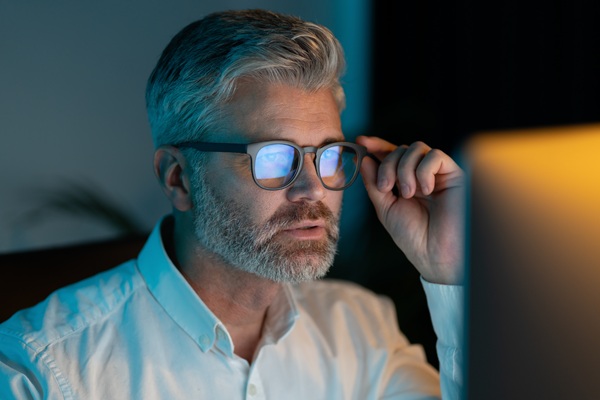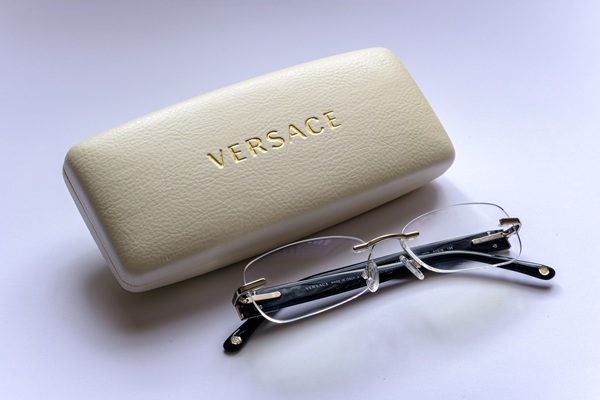How Blue Light Glasses Help Protect Your Eyes

Digital screens have become an essential part of modern life, making blue light glasses increasingly popular as a solution for eye strain and long-term visual health. These specialized lenses filter harmful blue light emitted from computers, smartphones, and tablets. As digital usage continues to rise, understanding the benefits of blue light glasses can help promote healthier vision and greater comfort throughout the day.
Understanding blue light
Blue light is part of the visible light spectrum, with wavelengths between 380 and 500 nanometers. It is classified as high-energy visible (HEV) light due to its short wavelength and higher energy. Sunlight is the largest source of natural blue light. However, electronic devices, LED lighting, and fluorescent bulbs are also substantial contributors to everyday blue light exposure.
While exposure to natural blue light during the day helps regulate individuals' natural circadian rhythms, excessive artificial blue light can be disruptive. Prolonged screen exposure may also lead to eye strain, headaches, blurred vision, and difficulty falling asleep. For these reasons, protective strategies such as blue light glasses are becoming increasingly popular.
The connection between blue light and eye strain
Extended screen time results in symptoms collectively known as digital eye strain. These may include dryness, irritation, fatigue, or difficulty focusing. Blue light exposure can worsen these issues, as HEV light scatters more easily than other visible light. This scattering effect creates visual noise, forcing the eyes to work harder when processing digital images and information.
Additionally, individuals tend to blink less frequently when using digital devices, which reduces tear production and can lead to discomfort. Fortunately, blue light glasses are specifically designed to reduce the intensity of blue light that reaches the eyes, thereby reducing strain and improving comfort during extended screen use.
Sleep quality and blue light exposure
Blue light is contributing to the production of melatonin, which is the hormone responsible for regulating sleep cycles. Excessive exposure to artificial blue light in the evening can suppress melatonin production. This can lead to delayed sleep onset and disrupted rest.
Wearing blue light glasses, particularly in the hours leading up to bedtime, may help mitigate the negative effects of screen use on sleep quality. By filtering disruptive wavelengths, these glasses support more natural circadian rhythms and contribute to more restorative sleep patterns.
Long-term eye health considerations
Ongoing scientific research continues to explore the long-term effects of chronic blue light exposure. While definitive conclusions are still developing, a 2024 study published in Advanced Science suggests that prolonged exposure may contribute to retinal stress and potentially increase the risk of age-related macular degeneration (AMD).
Although blue light glasses are not a cure for professional eye care or a guaranteed protection against AMD, they represent a proactive measure that can help reduce daily exposure to harmful HEV wavelengths. When combined with other healthy habits such as regular screen breaks and proper lighting, they are a helpful tool as part of a comprehensive eye care routine.
How blue light glasses work
Blue light glasses use lens coatings or specialized filters that selectively block or absorb high-energy wavelengths. The level of protection depends on the type of lens, with some designed to filter only a portion of blue light and others engineered to block nearly all HEV wavelengths.
By limiting the passage of blue light, these glasses reduce glare, enhance contrast, and help prevent visual fatigue. Some advanced designs also incorporate anti-reflective coatings, which further minimize eye strain by reducing reflections from screens and ambient lighting.
Choosing the right blue light glasses
The market offers a wide range of blue light glasses, from affordable options to advanced designs with multiple protective coatings. Key factors that patients should consider when selecting a pair include:
- Filtration level
- Lens clarity
- Anti-reflective properties
- Comfort and style
An optometrist can help identify the most appropriate lenses based on the patient's unique needs, lifestyle, and daily screen usage. If the patient already wears corrective lenses, the optometrist may recommend a blue light coating to protect their eyes further.
Learn more about blue light glasses
The widespread use of cell phones, laptops, and other electronic devices exposes you and your eyes to blue light every day. While blue light glasses are not a substitute for professional eye care, they offer a practical and accessible way to reduce eye strain, support your sleep quality, and promote your long-term visual comfort. Call our Dallas office to learn more about blue light glasses or schedule your next check-up.
Request an appointment here: https://www.texasoptical.net or call Texas Optical at (214) 771-7333 for an appointment in our Dallas office.
Check out what others are saying about our services on Yelp: Read our Yelp reviews.
Recent Posts
The selection of eyewear feels significantly easier when the styles and craftsmanship of Versace eyewear enters the conversation, since bold lines and iconic detailing create an instantly recognizable look. Versace represents the intersection of Italian fashion and Greek mythos, blending confident glamour with symbolism through its signature Medusa logo. The brand is widely associated with…
Many people who work in construction or laboratories wear safety glasses to protect their eyes during the day. However, keeping your eyes safe extends beyond hazards in the workplace. There is a wide variety of household chores and hobbies for which you should wear eye protection. When used consistently, safety glasses help create a safer…
Transitions lenses combine style and convenience to support clear vision without switching between regular glasses and sunglasses. While they were often considered unfashionable in days past, times have certainly changed. Today, transition lenses can be fashionable, chic, and a reflection of your personal style. When designing a pair for you, an optometrist will look at…
Dry eye treatment is important when occasional irritation becomes ongoing discomfort that interferes with daily activities. Many individuals experience dryness, burning, or a gritty feeling in the eyes from time to time. However, when symptoms start to affect reading, screen use, or time outdoors, a structured approach to diagnosis and care helps protect comfort and…


